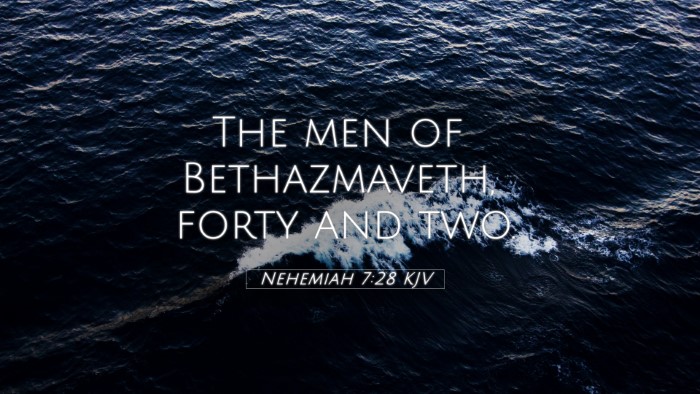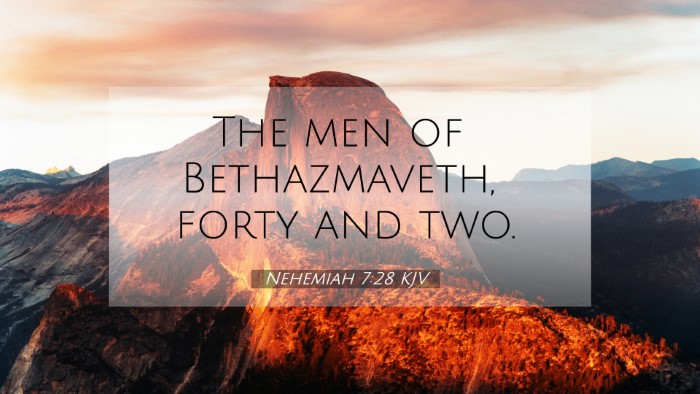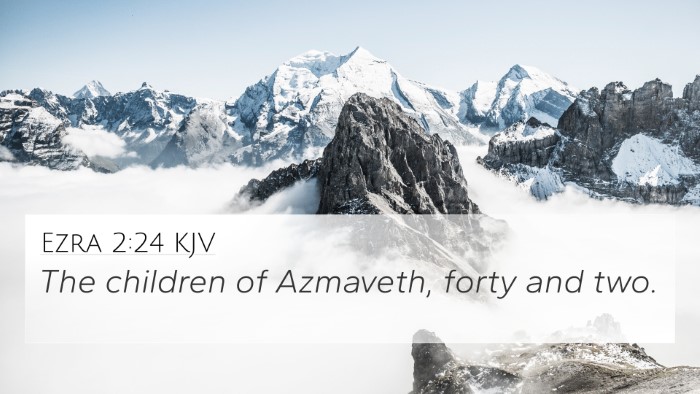Old Testament
Genesis Exodus Leviticus Numbers Deuteronomy Joshua Judges Ruth 1 Samuel 2 Samuel 1 Kings 2 Kings 1 Chronicles 2 Chronicles Ezra Nehemiah Esther Job Psalms Proverbs Ecclesiastes Song of Solomon Isaiah Jeremiah Lamentations Ezekiel Daniel Hosea Joel Amos Obadiah Jonah Micah Nahum Habakkuk Zephaniah Haggai Zechariah MalachiVerse
Nehemiah 7:1 Nehemiah 7:2 Nehemiah 7:3 Nehemiah 7:4 Nehemiah 7:5 Nehemiah 7:6 Nehemiah 7:7 Nehemiah 7:8 Nehemiah 7:9 Nehemiah 7:10 Nehemiah 7:11 Nehemiah 7:12 Nehemiah 7:13 Nehemiah 7:14 Nehemiah 7:15 Nehemiah 7:16 Nehemiah 7:17 Nehemiah 7:18 Nehemiah 7:19 Nehemiah 7:20 Nehemiah 7:21 Nehemiah 7:22 Nehemiah 7:23 Nehemiah 7:24 Nehemiah 7:25 Nehemiah 7:26 Nehemiah 7:27 Nehemiah 7:28 Nehemiah 7:29 Nehemiah 7:30 Nehemiah 7:31 Nehemiah 7:32 Nehemiah 7:33 Nehemiah 7:34 Nehemiah 7:35 Nehemiah 7:36 Nehemiah 7:37 Nehemiah 7:38 Nehemiah 7:39 Nehemiah 7:40 Nehemiah 7:41 Nehemiah 7:42 Nehemiah 7:43 Nehemiah 7:44 Nehemiah 7:45 Nehemiah 7:46 Nehemiah 7:47 Nehemiah 7:48 Nehemiah 7:49 Nehemiah 7:50 Nehemiah 7:51 Nehemiah 7:52 Nehemiah 7:53 Nehemiah 7:54 Nehemiah 7:55 Nehemiah 7:56 Nehemiah 7:57 Nehemiah 7:58 Nehemiah 7:59 Nehemiah 7:60 Nehemiah 7:61 Nehemiah 7:62 Nehemiah 7:63 Nehemiah 7:64 Nehemiah 7:65 Nehemiah 7:66 Nehemiah 7:67 Nehemiah 7:68 Nehemiah 7:69 Nehemiah 7:70 Nehemiah 7:71 Nehemiah 7:72 Nehemiah 7:73


